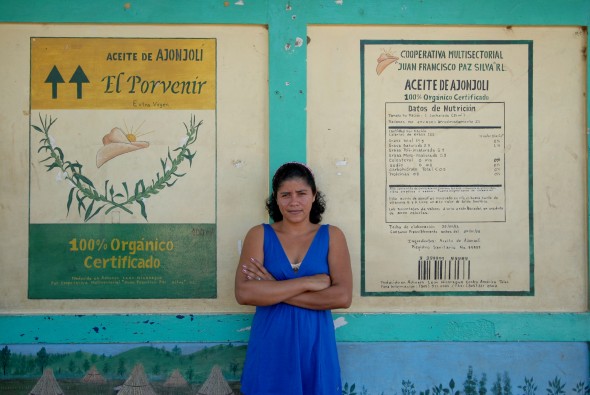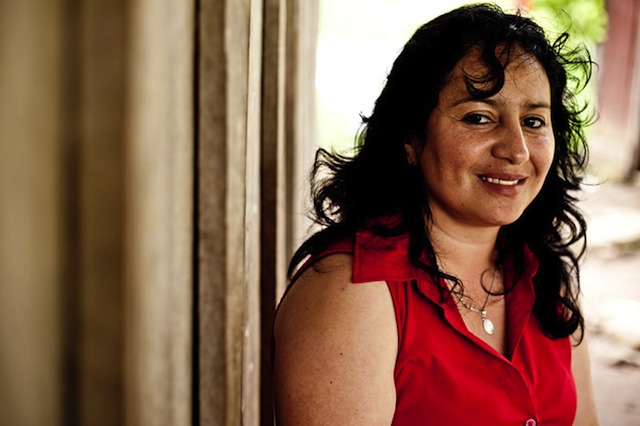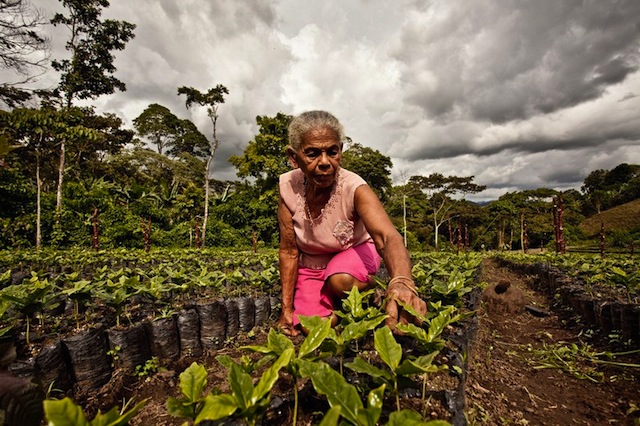It is one of the world’s most unfortunate dynamics that domestic labor is by and large considered to only have economic value when performed for families other than our own. Luckily, a handful of co-operatives in Nicaragua have taken steps to change that.
According to the New Internationalist, the Juan Francisco Paz Silva co-op in Nicaragua has included the value of women’s domestic work in their production budget since 2008. Co-op leaders understand that women’s domestic labor contributes to the success of the production process, even if it’s not a “job” assigned by a specific employer with a paycheck. Domestic work is a job in and of itself. The Silva co-op worked with Ético, an ethical trading and investment company, to account for women’s domestic labor in the cost of the co-op’s production of sesame oil. Using the same rate paid for rural male manual labor, a fee of 960 córdobas (around $50) was added to each manzana (0.7 of a hectare) of sesame crop. This added cost continues to be included in the co-op’s Fair Trade contract with The Body Shop.

via newint
Valuing domestic work is all about following the production chain all the way to the bottom (and forgetting about the patriarchy). Eva Pineda, gender equity officer for Aldea Global, explains that the chain of events that result in the coffee crops being harvested begins at the farmer’s home. Pineda works for the Asociación Aldea Global Jinotega de Nicaragua, a local co-operative that created and sells Tierra Madre coffee, coffee exclusively produced by Nicaraguan women who own the land they harvest. In a four part video series for Intermón Oxfam, Pineda explains that women’s work days in rural Nicaragua are longer than most men’s work days in the field, yet women remain largely unpaid for their work. Women are responsible for preparing the food, laundry, taking care of the family, the livestock and the home. Their day starts at 4am and can end anywhere between 6 to 10pm -during peak harvest season women usually don’t sleep more than 4 hours a night, regardless of whether or not they are working in the fields. Women’s domestic work is the starting point in the process that results in harvested coffee beans, as they facilitate all the components that allow for the day to run its course. Any feminist would agree, but society still has a hard time remembering not to take that work for granted.
Pineda sheds light on the structure that benefits from women’s unpaid labor. In part 2 of her video series, Pineda explains that women in rural Nicaragua are taught to stay at home and learn how to take care of the family, while men are encouraged to leave their communities in search of better opportunities. The reasoning behind this is that women are fragile and men are not — their definition of fragile becomes clear when she elaborates that a family’s biggest fear is that the woman will come back pregnant, noting that men in general are never really advised against getting a women pregnant when they leave their communities. Because of the expectation to have girls grow up around and take care of their families, many of them are denied education. The lack of opportunities — particularly education — usually dictates a life of financial dependance on a male figure, be it a father or a husband. Paid domestic labor upsets that structure, gives women more power in the community and over their own lives. The effect of accounting for domestic labor in the cost of sesame oil and coffee production goes beyond the tangible monetary amount; it sends the message that women’s work is valuable no matter what it looks like or where it takes place in the production process.

eva pineda via intermon oxfam
“You no longer have to lower your head and wait for the man to tell you what to do; now we make our own decisions and share activities and responsibilities with our partners.” – Adilia Amador Sevilla from Achuapa, Nicaragua
To be clear, the added income does not go directly into the women’s hands. A study presented at the Oñati International Institute for the Sociology of Law clarifies that the co-ops have used the fee paid for women’s domestic labor to set up general savings that now finance a micro-loan program for women members of the co-op. Women have used the micro-loans to support their own artisan work and the preparation of goods that can be later sold at the co-op shop. As a result, the Silva co-op has seen an increase in the amount of women that have joined the cooperative as full members. In 2010, 19 of the 34 new members were women — a significant increase for a co-op that previously had only 42 women out of 272 members. Aldea Global uses the gender premium added to their products to support the co-op’s gender equity program, which funds the women’s rights awareness workshops for men and women. The gender equity program also covers the legal costs necessary to change farms’ and lands’ registry to include the name of the women working in them.

luz evelia godines, member of aldea global. via intermon oxfam
Pineda mentions land ownership and acknowledgement of the key role domestic work has in the production process has opened women’s eyes. “They had never seen themselves as part of the production process, just as unpaid cooks for their husbands” but now they have more confidence and a well-deserved sense of ownership.
The impact of these initiatives is the more striking because of its limited execution -I couldn’t find any other similar initiatives taking place anywhere else in the world. Yet again, recognizing domestic labor as valuable challenges the structure that dictates only men should control the means of production. Saying labor is valuable even when it is: a) predominantly performed by women and b) performed outside the workplace would mean recognizing women as equals. (Not to mention the intersection between women of color and domestic work.) Here’s hoping one day that takes place.



THANK YOU this is so so so so awesome. I did my thesis on immigrant domestic worker organizing in the US…there’s definitely some interesting overlap.
some additional kickass books on domestic work in the US (by primarily Mexican and Central American immigrants):
Doméstica – Pierrette Hondagneu-Sotelo
Servants of Globalization: Women, Migration, and Domestic Work- Rhacel Salazar Parrenas
Disposable Domestics: Immigrant Women Workers in the Global Economy- Grace Chang
Also, I just read this today! http://www.afscme.org/blog/a-major-win-for-home-care-providers-and-their-consumers-in-iowa
hoooraaaayyyyyy
this is so awesome.
interesting! thank you! it sounds like those women work REALLY hard long hours. paying people for work that is usually unpaid is one way to address the gender wage gap that isn’t often discussed as an option. good for this co-op for experimenting, and for working to value what is usually unpaid labour.
But the women aren’t really paid for their domestic labour? Maybe I read this wrong, but the way I understand this no money actually reaches individual women simply as a monetary reward for their domestic labour? The co-op says they’re paying women for their domestic labour, but actually what they do is take the money they’re supposed to give to women for their domestic labour and put it into a micro-loan scheme for women – which only a very limited number of women can access. And micro-loan schemes for women are actually really common (especially because studies show women are better at paying back micro-loans than men).
also note that the micro-loan scheme are specifically used to help out women who produce “artisan goods” – that is, the money that’s supposed to repay women for their domestic work can actually only be used to pay them for doing something that’s specifically not domestic work
Yup… I mean Salary is defined as the money you get for the work you do. And in Venezuelan Law it’s ilegal for anyone to tell you what to do with your salary or paycheck. You can use it in anyway you want, so I mean, is good that they’re progressing but they’re not getting paid for their domestic labour yet. Not as the men get paid anyway.
Exactly what I was wondering…
This is so awesome. I used to work with fair trade farmers in Ecuador, and one of my biggest frustrations was the lack of inclusion for women. This seems like an awesome way to change that. Hopefully this idea spreads beyond Nicaragua!
I always struggle with these kinds of issues at fancy ass coffee shops- you know the kind, reclaimed wood everywhere, tattooed baristas yaking back and forth about TDS and various brewing methods. I’m like, yo, you don’t have as much control over this cup of hot bean water as the person who grew it. Let’s focus on that way, way more intense labor. Not to diminish service workers, because that shit is difficult too, but let’s be real- farming for way less than minimum wage is a major suck and they almost never get the credit from industry professionals for making such amazing products.
I love Ritual Coffee roasters in SF, their packaging is farmer focused, with the grower’s name and location right on the label, and they pay decently too. Good way to show a little respect.
This whole article is a drop the mic moment.
This is amazing! Thank you for posting!
But they don’t actually get the money? This is confusing